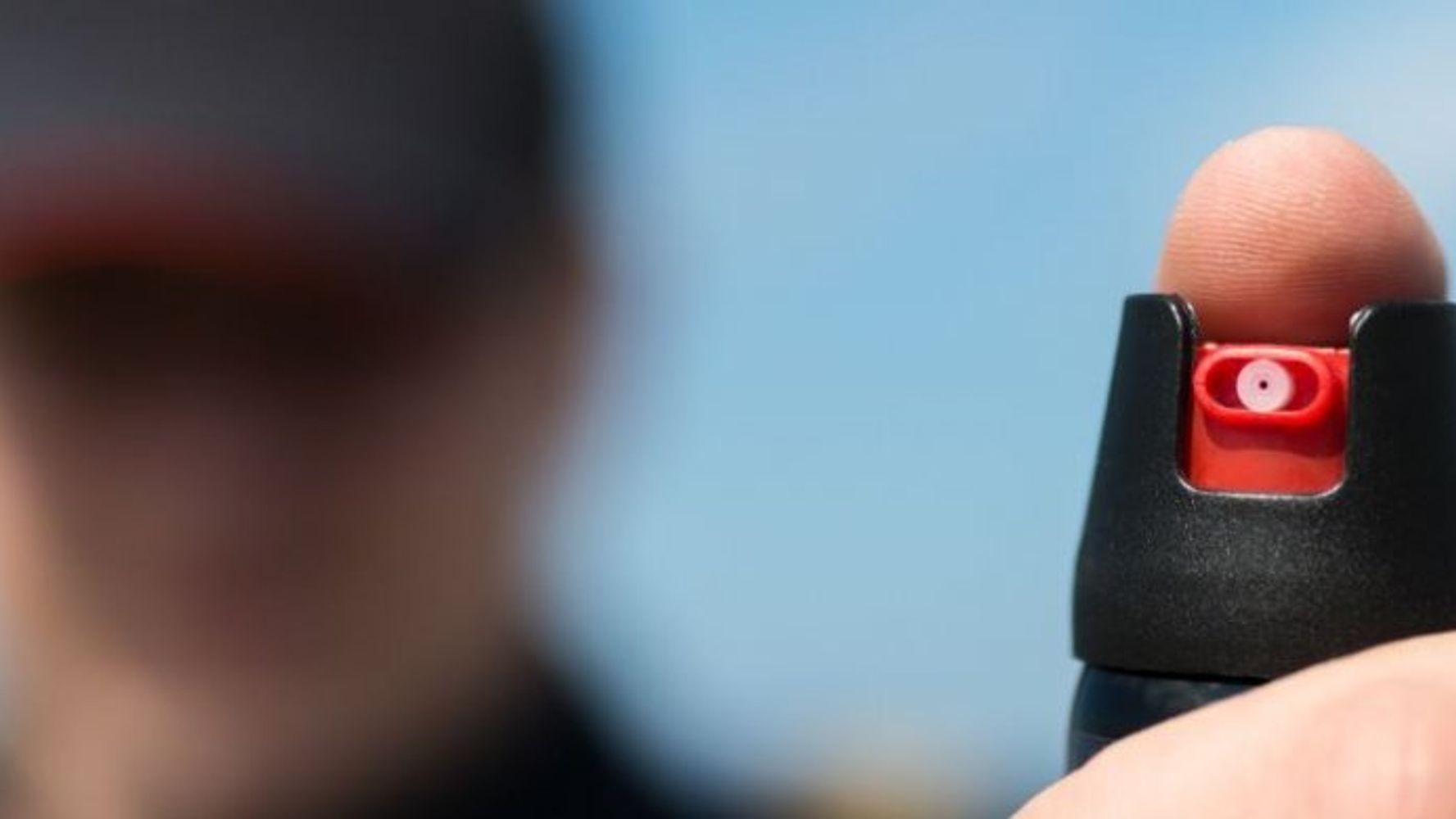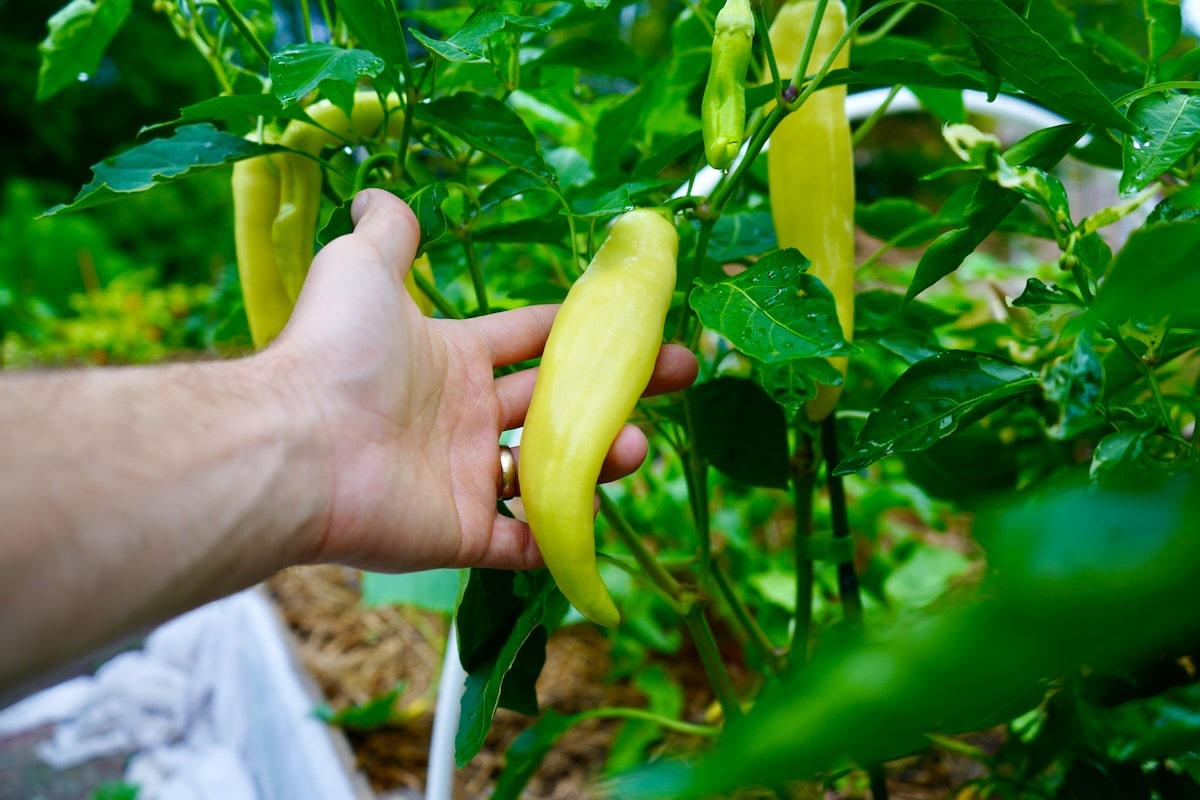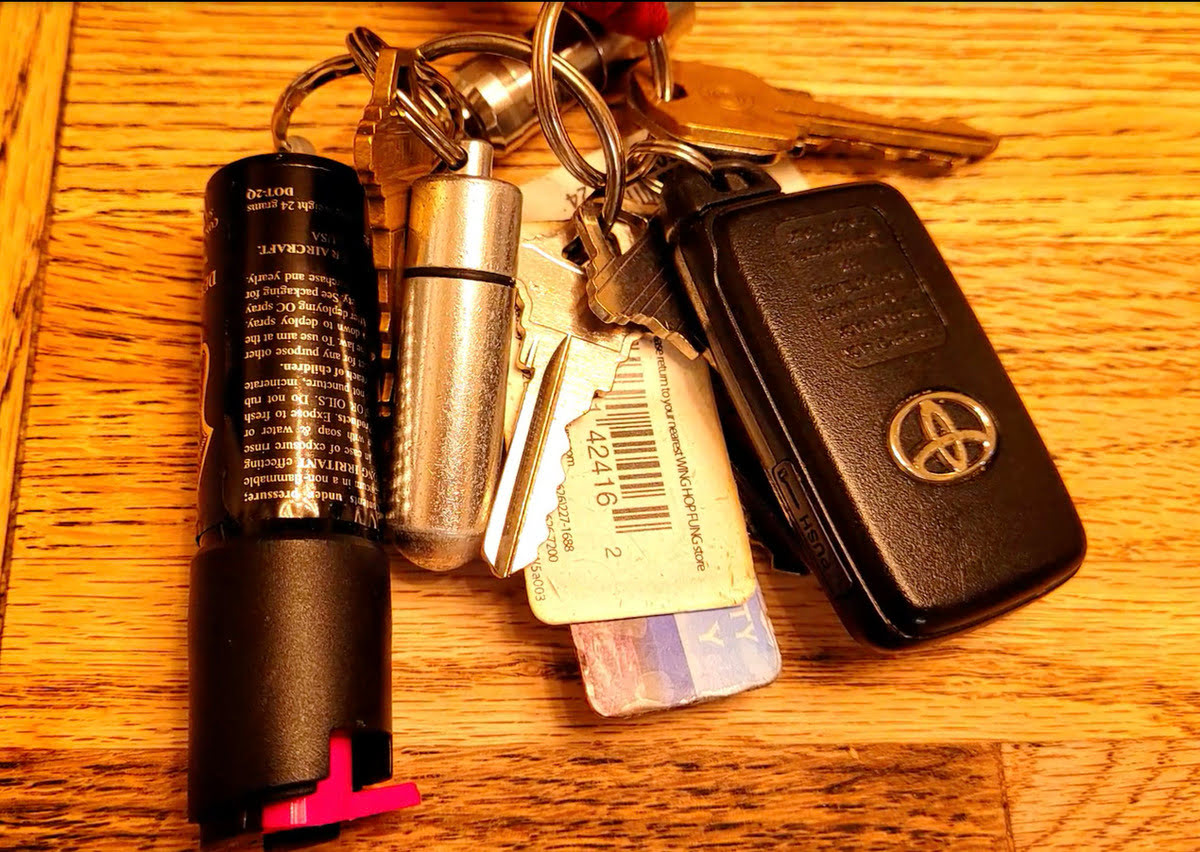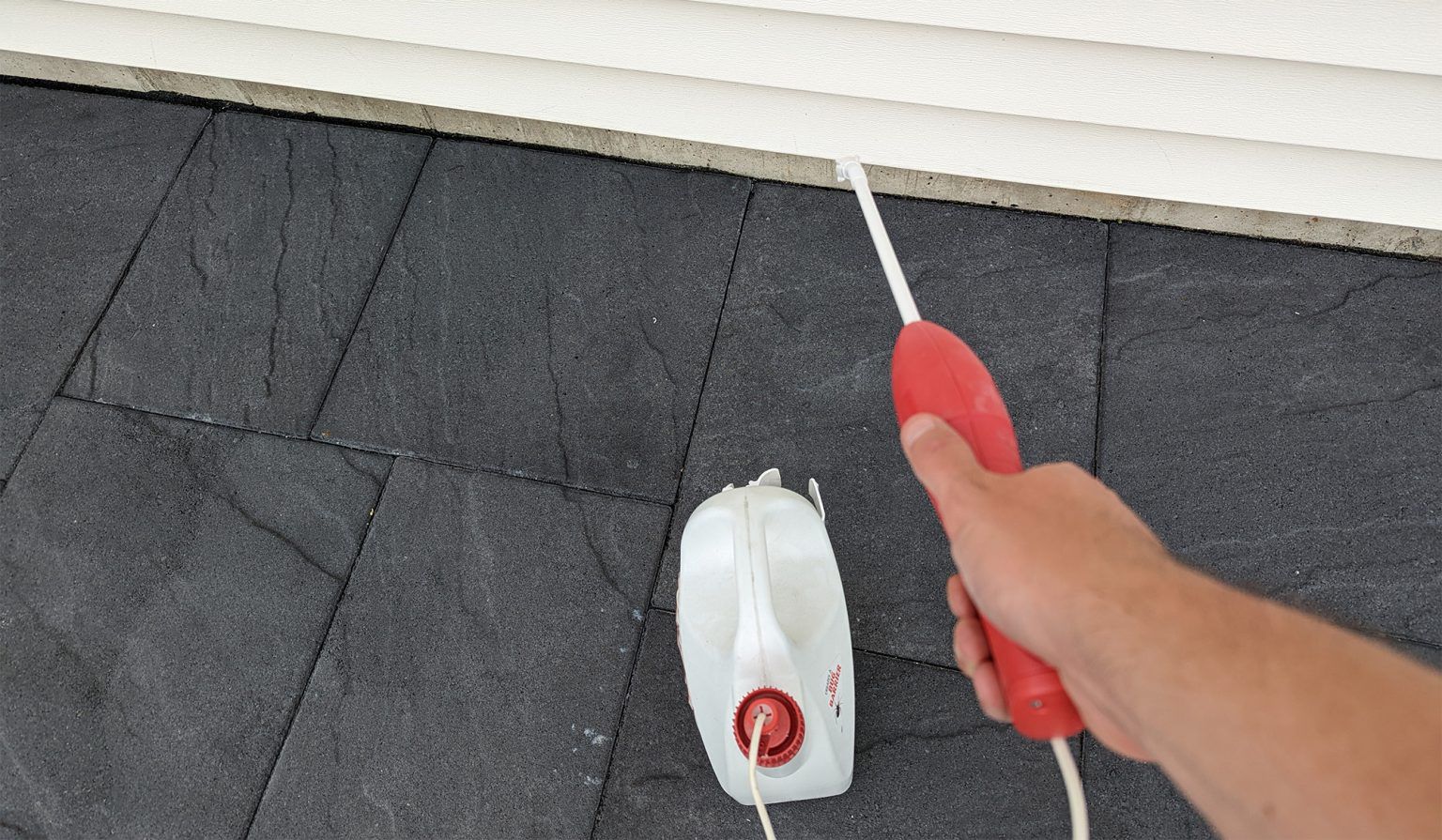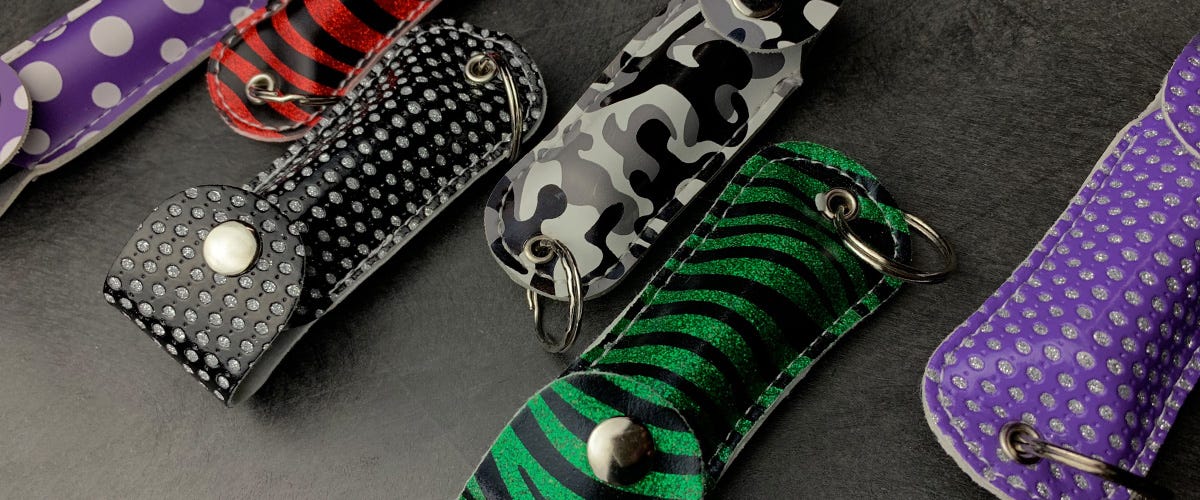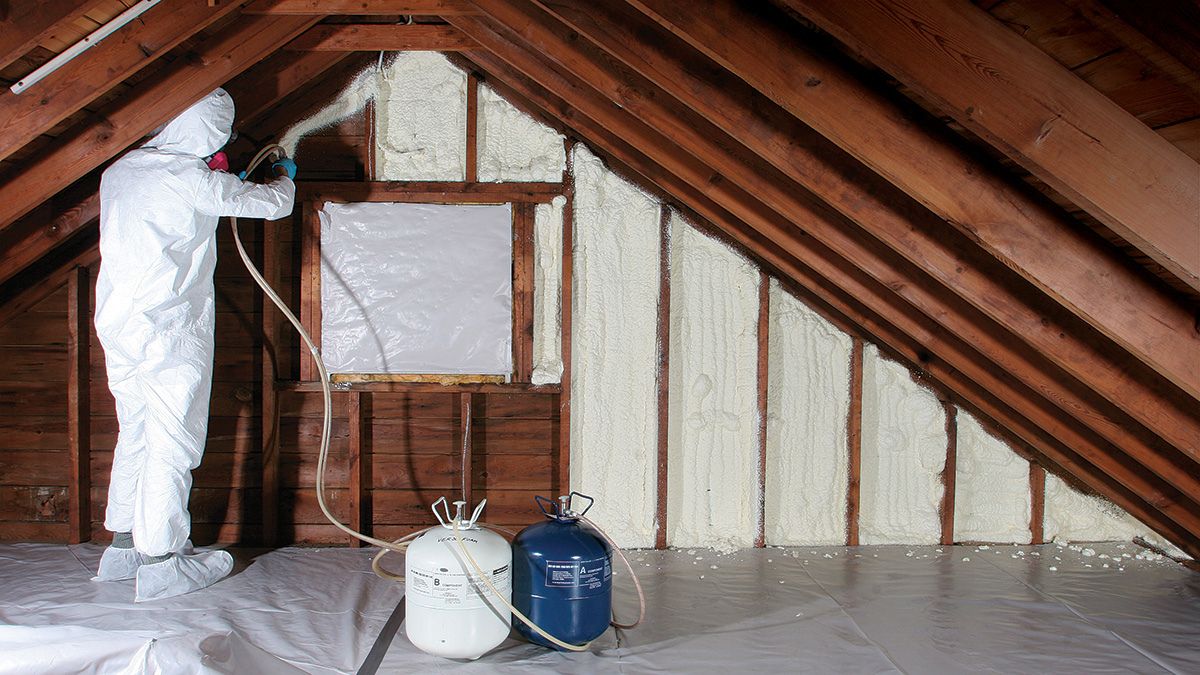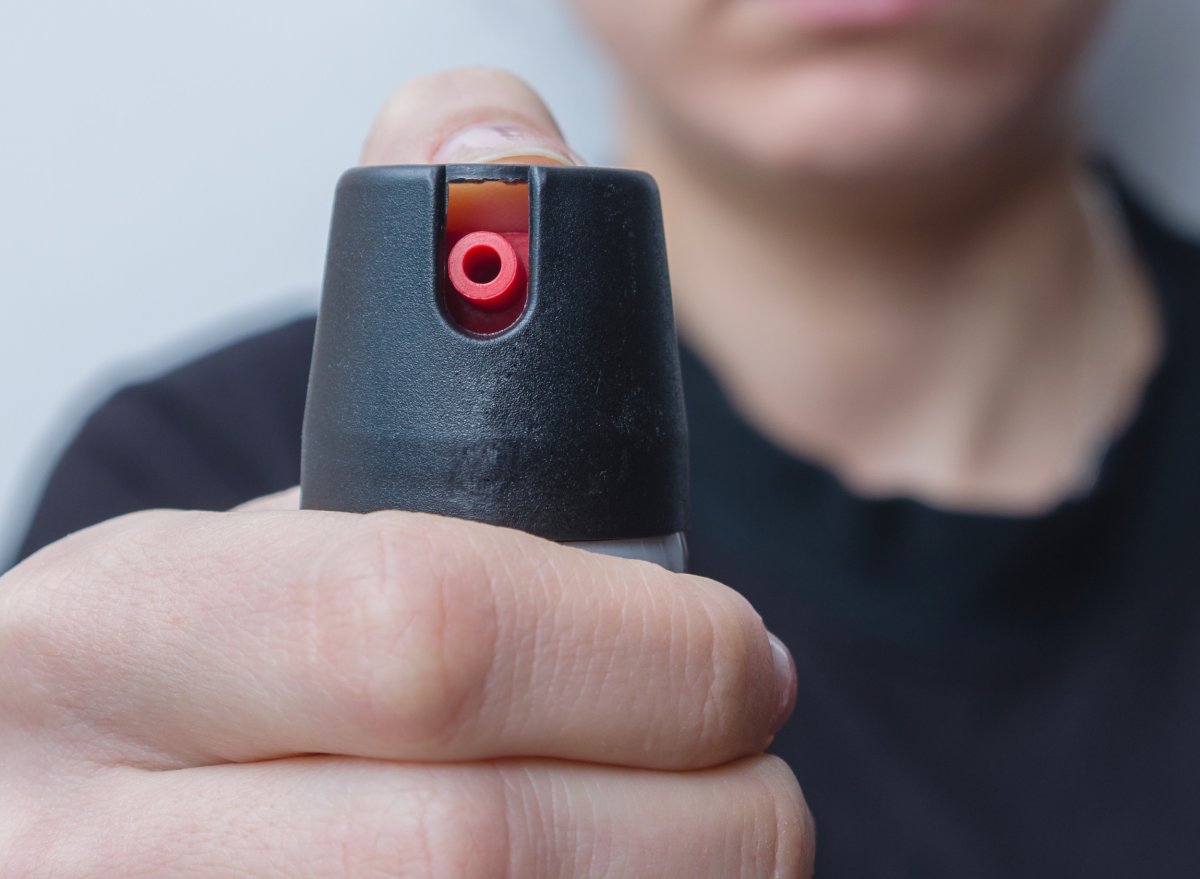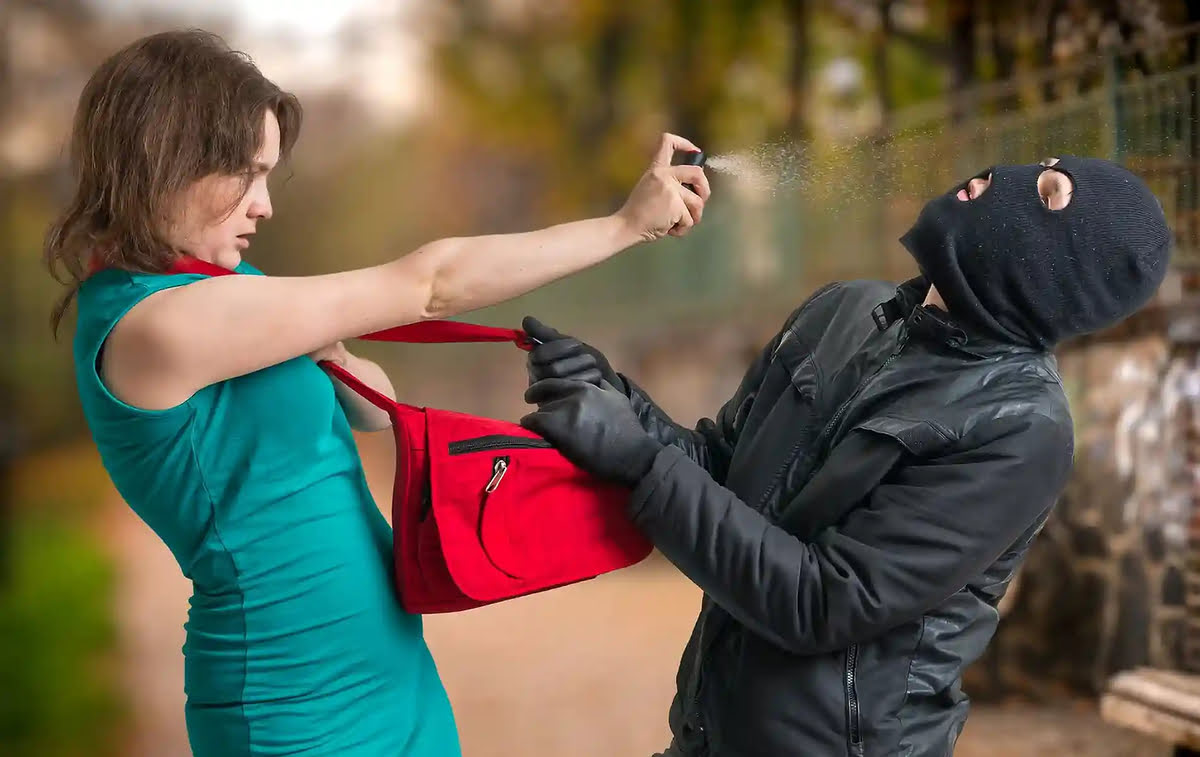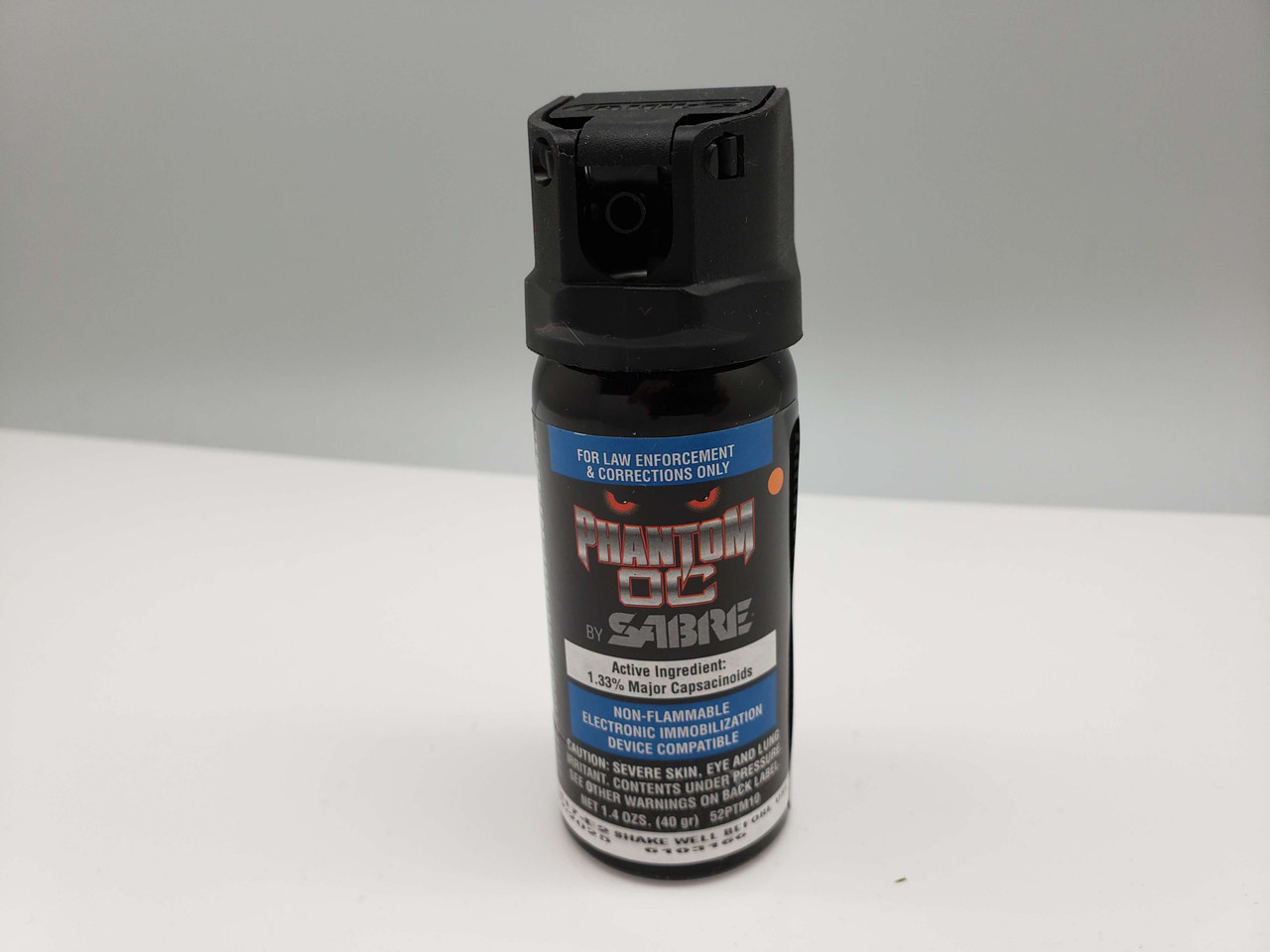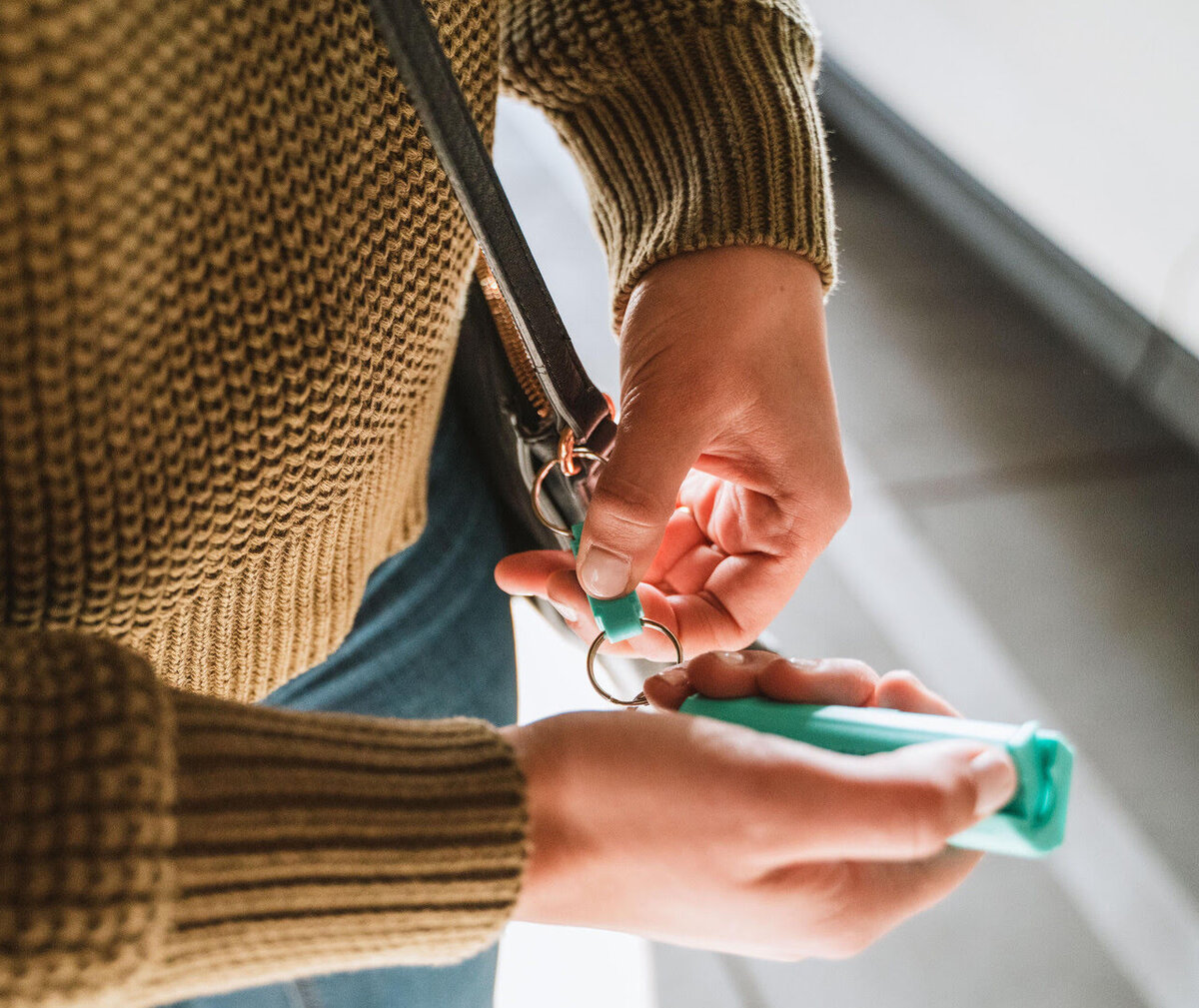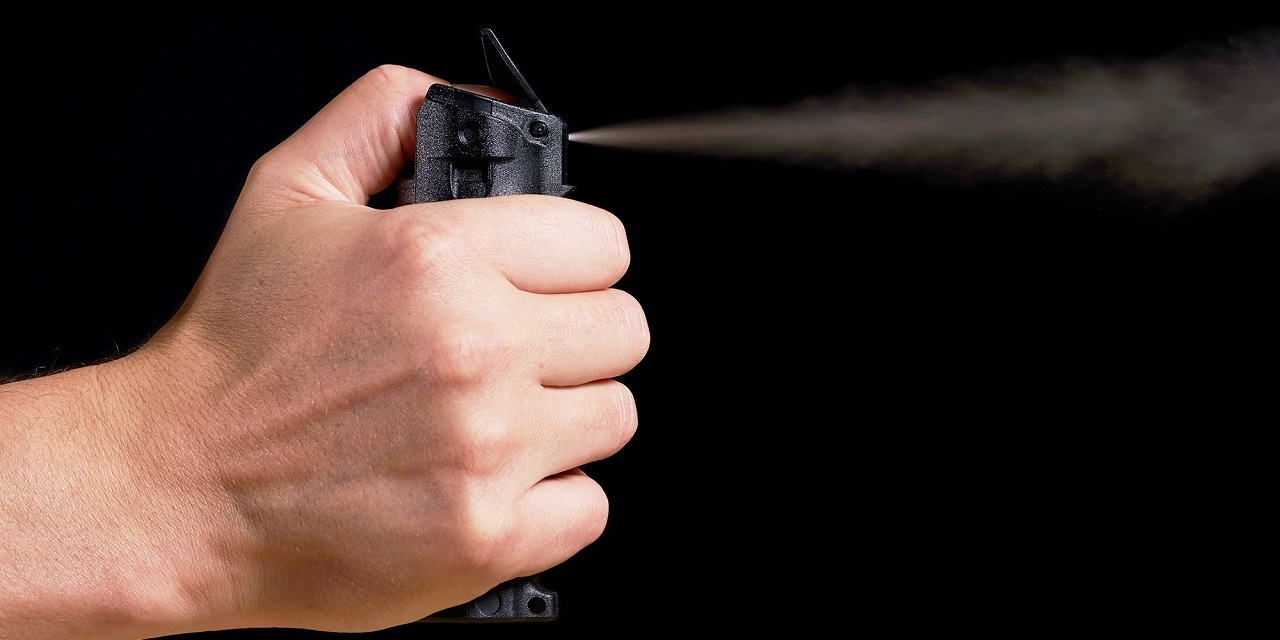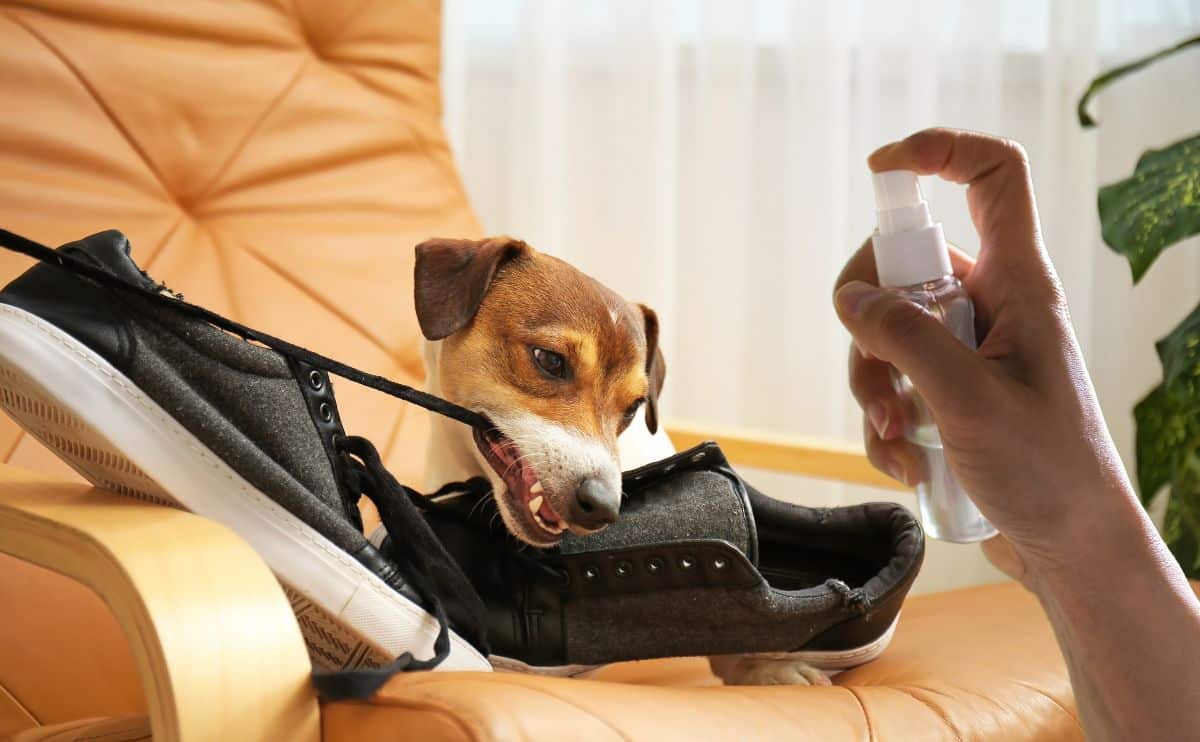Home>Home Security and Surveillance>How Long Does It Take For Pepper Spray To Wear Off
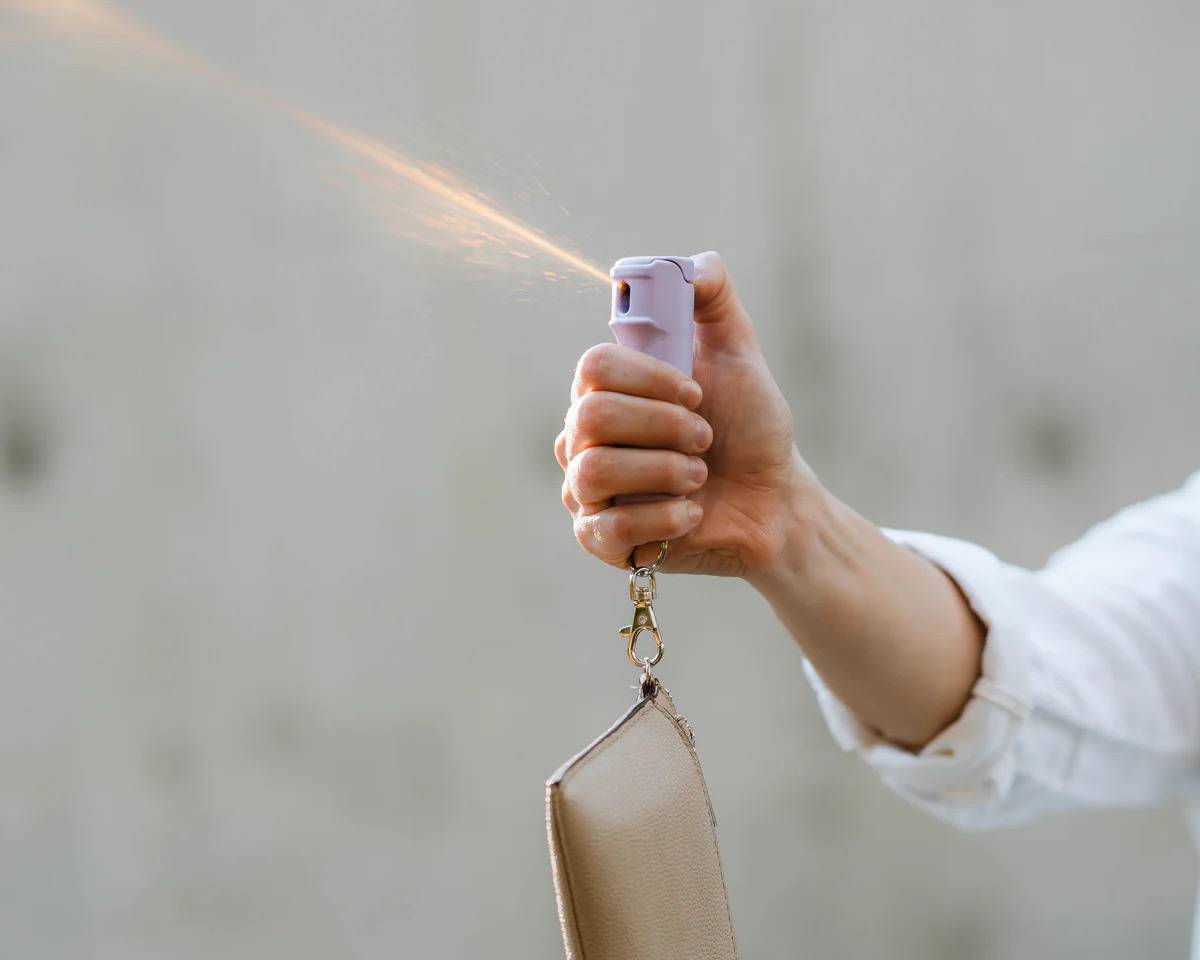

Home Security and Surveillance
How Long Does It Take For Pepper Spray To Wear Off
Modified: August 16, 2024
Discover how long it takes for pepper spray to wear off and ensure your home security and surveillance with our expert tips and advice.
(Many of the links in this article redirect to a specific reviewed product. Your purchase of these products through affiliate links helps to generate commission for Storables.com, at no extra cost. Learn more)
Introduction
Pepper spray is a popular self-defense tool that can temporarily incapacitate an attacker. It is commonly used by law enforcement agencies, security personnel, and individuals who prioritize personal safety. Pepper spray works by irritating the skin, eyes, and respiratory system, causing intense pain, temporary blindness, and difficulty in breathing. While it can be an effective deterrent, it is important to understand how long the effects of pepper spray last to ensure proper safety measures are taken.
In this article, we will delve into the factors that affect the duration of pepper spray’s effects and provide insights into how long it takes for the effects to wear off. By understanding these factors, you can make informed decisions and take appropriate actions in case you or someone you know is exposed to pepper spray.
So, let’s explore the world of pepper spray and discover the ins and outs of how long its effects typically last.
Key Takeaways:
- Pepper spray effects can last 20-30 minutes on the skin, a few hours on the eyes and respiratory system. Understanding these durations helps in taking appropriate actions for relief.
- Factors like concentration, exposure duration, and individual sensitivity influence how long pepper spray effects last. Seeking fresh air, rinsing with cold water, and staying calm can help accelerate relief.
Read more: How To Wash Off Pepper Spray
Understanding Pepper Spray
Pepper spray, also known as OC spray (oleoresin capsicum), is a non-lethal chemical compound derived from hot peppers. It contains a highly concentrated extract called capsaicin, which is the active ingredient responsible for its effects. When pepper spray comes into contact with the skin, eyes, or respiratory system, it causes an intense burning sensation and inflammation, incapacitating the attacker temporarily.
Pepper spray comes in various forms, including aerosol sprays, foam, gels, and even projectiles. These different formulations are designed to deliver the capsaicin compound effectively and maximize its effects.
It’s important to note that not all pepper sprays are created equal. The potency of pepper sprays can vary, and it is crucial to choose a reputable brand that meets regulatory standards and has a high capsaicin content. Higher capsaicin levels generally result in more potent effects.
Before using pepper spray or purchasing it for personal defense, be aware of the legal restrictions in your area. Some jurisdictions have specific regulations regarding the purchase, possession, and use of pepper spray, so it’s essential to familiarize yourself with the local laws and guidelines.
Now that we have a basic understanding of what pepper spray is and how it works, let’s dive deeper into the factors that affect the duration of its effects.
Factors Affecting Duration of Effects
The duration of pepper spray’s effects can vary depending on several factors. Understanding these factors can help you gauge how long the effects might last in different situations:
- Concentration of Capsaicin: The concentration of capsaicin in the pepper spray formulation plays a significant role in determining the duration of its effects. Higher concentrations of capsaicin generally result in more prolonged effects.
- Duration and Intensity of Exposure: The length of time and the intensity of exposure to pepper spray also impact how long the effects will last. If you were exposed to a brief burst of pepper spray, the effects may wear off more quickly compared to a prolonged exposure.
- Individual Sensitivity: Each person’s sensitivity to the capsaicin compound can vary. Some individuals may have a higher tolerance to the effects of pepper spray, while others may be more sensitive. Factors such as pre-existing respiratory conditions, skin type, and overall health can influence an individual’s reaction and the duration of the effects.
- Environmental Factors: Environmental conditions, such as temperature, humidity, and air circulation, can affect how long the effects of pepper spray last. Higher temperatures and humidity can potentially intensify the effects, while good air circulation may help disperse the irritants faster.
- Proximity to the Spray: The distance between the person sprayed and the spray itself can impact the duration of the effects. If the spray is applied from a close range, the effects may be more intense and last longer, compared to a spray that is applied from a greater distance.
It is important to note that while these factors can give a general idea of how long the effects of pepper spray might last, individual experiences can vary. Each person’s reaction to pepper spray can be unique, and factors such as overall health, tolerance levels, and even adrenaline levels at the time of exposure can influence the duration of the effects.
Now that we have explored the factors that affect the duration of pepper spray’s effects, let’s delve into the immediate effects of pepper spray.
Immediate Effects of Pepper Spray
When pepper spray is deployed, it causes immediate and intense effects on the target’s body. These effects are designed to incapacitate the attacker temporarily and provide the victim an opportunity to escape. Let’s take a closer look at the immediate effects of pepper spray:
- Burning Sensation: Upon contact with the skin, pepper spray creates an intense burning sensation. This sensation is often described as a searing heat or a feeling of being on fire. It can cause extreme discomfort and pain.
- Difficulty in Breathing: Pepper spray irritates the respiratory system and can lead to difficulty in breathing. It causes throat and lung inflammation, resulting in coughing, choking, and gasping for air.
- Blurry Vision: Contact with pepper spray can cause temporary vision impairment. The capsaicin compound irritates the eyes and can result in blurred vision, watery eyes, and even temporary blindness.
- Swelling and Inflammation: Pepper spray can cause swelling and inflammation of the skin, particularly in the areas where it makes contact. This can lead to redness, irritation, and a sensation of tightness or puffiness.
- Disorientation and Panic: The immediate effects of pepper spray can induce disorientation, confusion, and panic in the target. The intense pain and discomfort can make it challenging for the attacker to focus or continue their aggressive behavior.
It’s important to remember that these immediate effects occur shortly after exposure to pepper spray and are part of its intended purpose. They can vary in intensity depending on the factors previously mentioned, such as concentration, duration of exposure, and individual sensitivity.
In the next sections, we will explore the duration of pepper spray’s effects on different parts of the body, including the skin, eyes, and respiratory system.
Duration of Effects on Skin
When pepper spray comes into contact with the skin, it can cause intense and immediate effects. The duration of these effects can vary depending on several factors, including the concentration of capsaicin, duration of exposure, and individual sensitivity. Here is a general guideline of how long the effects of pepper spray may last:
- Initial Intense Burning: Immediately after being sprayed, the burning sensation on the skin can be extremely intense. It may last for approximately 20 to 30 minutes, causing significant discomfort and pain. During this time, it is important to avoid scratching or rubbing the affected areas, as it can further aggravate the skin.
- Redness and Swelling: Following the initial burning sensation, the affected areas of the skin may become red and swollen. This can last for several hours, typically subsiding within 4 to 6 hours. Applying a gentle, cool compress to the affected areas can help reduce inflammation and provide some relief.
- Sensitivity and Discomfort: Even after the initial burning and inflammation subside, the skin may remain sensitive and uncomfortable for up to 24 hours. It is important to avoid any further exposure to irritants and to keep the affected areas clean and moisturized.
- Long-Term Effects: In rare cases, individuals with sensitive skin or prolonged exposure to pepper spray may experience lingering effects, such as dryness, itching, or a mild rash, for a few days after the initial exposure. If you are experiencing persistent skin irritation, it is advisable to seek medical attention.
It’s important to note that individual experiences can vary, and the duration of effects on the skin can depend on factors such as the potency of the pepper spray, the amount applied, and the person’s overall health and skin condition.
In the next sections, we will explore the duration of pepper spray’s effects on the eyes and respiratory system.
After being sprayed with pepper spray, it can take 20-90 minutes for the effects to wear off. To speed up the process, rinse the affected area with cold water and use a mild soap to wash off the spray.
Read more: How Long Does Pepper Spray Last In The Air
Duration of Effects on Eyes
When pepper spray comes into contact with the eyes, it can cause immediate and severe discomfort. The effects on the eyes can be quite debilitating, temporarily impairing vision and causing intense pain. The duration of these effects can vary based on factors such as the concentration of capsaicin, proximity to the spray, and individual sensitivity. Here is a general overview of how long the effects of pepper spray may last on the eyes:
- Immediate Eye Irritation: Upon contact with pepper spray, the eyes may immediately begin to sting, burn, and tear up. These sensations can be incredibly intense and may persist for up to 30 minutes or longer. It is crucial to avoid rubbing the eyes, as it can further exacerbate the irritation.
- Temporary Vision Impairment: Pepper spray can temporarily impair vision, causing blurred or hazy sight. This visual disturbance can last for several hours, typically improving within 2 to 4 hours. During this time, it is essential to refrain from activities that require clear vision, such as driving or operating machinery.
- Light Sensitivity: Following exposure to pepper spray, the eyes may become sensitive to light. This sensitivity, known as photophobia, can last for several hours or even a day. It is advisable to protect the eyes from bright lights by wearing sunglasses or staying in a dimly lit environment.
- Residual Discomfort: After the initial effects subside, some individuals may experience residual discomfort in the eyes, such as a gritty or burning sensation. This discomfort typically resolves within 24 to 48 hours, but if it persists or worsens, seeking medical attention is recommended.
It is important to remember that the effects on the eyes can vary from person to person, and some individuals with pre-existing eye conditions or increased sensitivity may experience more prolonged discomfort. If you are concerned about the effects of pepper spray on your eyes, it is best to consult with a healthcare professional.
In the next section, we will explore the duration of pepper spray’s effects on the respiratory system.
Duration of Effects on Respiratory System
When pepper spray is inhaled, it can have a significant impact on the respiratory system. The effects can be distressing, leading to difficulty in breathing and a sense of respiratory distress. The duration of these effects can vary depending on factors such as the concentration of capsaicin, duration of exposure, and individual sensitivity. Here is a general overview of how long the effects of pepper spray may last on the respiratory system:
- Immediate Breathing Difficulties: Upon inhalation of pepper spray, irritation of the respiratory system can cause immediate breathing difficulties. This can range from mild discomfort to more severe symptoms such as coughing, wheezing, and shortness of breath. These symptoms typically last for approximately 15 to 30 minutes, gradually improving as the irritants disperse.
- Throat and Lung Inflammation: Pepper spray can lead to inflammation of the throat and lungs. This inflammation may persist for a few hours, causing persistent coughing and discomfort. Drinking fluids and staying in a well-ventilated area can help alleviate these symptoms.
- Recovery Time: In most cases, the effects on the respiratory system subside within a few hours after exposure to pepper spray. However, it is important to note that individuals with pre-existing respiratory conditions or increased sensitivity may experience prolonged effects. If breathing difficulties persist or worsen, seeking immediate medical attention is advisable.
It is crucial to remove oneself from the source of pepper spray and seek fresh air as soon as possible if exposure to pepper spray occurs. Avoiding further exposure to irritants and practicing proper breathing techniques can also help alleviate the discomfort and aid in the recovery process.
Remember that the duration of effects on the respiratory system can vary depending on various factors. If you have concerns about the effects of pepper spray on your respiratory system, it is recommended to consult with a healthcare professional.
In the next section, we will explore factors that can accelerate the wearing off of pepper spray’s effects.
Factors That Can Accelerate Wearing Off
While the effects of pepper spray can be intense and long-lasting, there are several factors that can help accelerate the wearing off of its effects. By understanding and implementing these factors, you can potentially reduce the duration of discomfort and aid in the recovery process. Here are some factors that can contribute to the faster wearing off of pepper spray’s effects:
- Fresh Air: Removing yourself from the area where the pepper spray was deployed and seeking fresh air can help disperse the irritants faster. Good ventilation and fresh air circulation can contribute to the faster recovery of the respiratory system and the reduction of discomfort.
- Flushing with Cold Water: If exposed to pepper spray on the skin, flushing the affected areas with cold water can help soothe the burning sensation and accelerate the washing away of the capsaicin compound. Avoid using warm or hot water, as it can potentially intensify the irritation.
- Keep Eyes Blinking: If pepper spray gets into the eyes, blinking rapidly and using artificial tears can help flush out the irritants more quickly. Avoid rubbing the eyes, as it can further distribute the capsaicin compound.
- Mild Cleansers: Washing the affected areas with mild soap and water can help remove any remaining residue of the pepper spray. Avoid using harsh or abrasive cleansers, as they can further irritate the skin.
- Keeping Calm: While it may be challenging, staying calm and avoiding excessive rubbing or scratching of the affected areas can prevent further agitation and potentially shorten the duration of discomfort.
It is important to note that while these factors can accelerate the wearing off of pepper spray’s effects, individual experiences can still vary. Factors such as the concentration of capsaicin, duration of exposure, and individual sensitivity will ultimately determine the overall duration of the effects.
In the next section, we will provide some helpful tips for relieving the effects of pepper spray.
Tips for Relieving Pepper Spray Effects
Exposure to pepper spray can be a distressing experience, but there are several tips and measures you can take to alleviate the effects and aid in your recovery. Here are some helpful tips for relieving the effects of pepper spray:
- Move to Fresh Air: If you are indoors or in a confined space, move to an area with fresh air as soon as possible. Fresh air can help disperse the irritants and alleviate respiratory discomfort.
- Rinse with Cold Water: If pepper spray comes into contact with your skin, quickly rinse the affected areas with cold water. Avoid using warm or hot water, as it can further activate the capsaicin compound. Continue rinsing for several minutes to flush out the irritants.
- Do Not Rub Your Eyes: If pepper spray gets into your eyes, resist the urge to rub them. Instead, blink rapidly to help flush out the irritants. If possible, use artificial tears to lubricate the eyes and aid in relieving the discomfort.
- Use a Gentle Cleanser: Wash the affected areas of the skin with a mild cleanser and lukewarm water to remove any traces of pepper spray. Gently pat dry with a clean towel.
- Apply Moisturizers: After rinsing off the pepper spray, apply a moisturizing lotion or aloe vera gel to soothe the skin and alleviate any dryness or discomfort.
- Drink Water: Hydrating yourself by drinking plenty of water can help flush out the irritants and relieve the burning sensation both internally and externally.
- Avoid Touching Your Face: To prevent further spreading of the capsaicin compound, avoid touching your face, especially your eyes, nose, and mouth, until you have thoroughly washed your hands.
- Seek Medical Attention if Necessary: If the effects of pepper spray persist, worsen, or cause severe distress, it is important to seek medical attention. A healthcare professional can provide further guidance and treatment if needed.
Remember, everyone reacts differently to pepper spray, so it’s important to listen to your body and adapt these tips according to your own comfort level. Additionally, if you experience any unusual or severe symptoms, it is best to consult with a healthcare professional.
Now that you have a better understanding of how to relieve the effects of pepper spray, let’s conclude our exploration.
Read more: How Long Does Pepper Spray Stay On Surfaces
Conclusion
Pepper spray is a widely used tool for personal safety and self-defense, but understanding its effects and knowing how long they typically last is essential for ensuring your well-being. By gaining knowledge about pepper spray and its duration of effects, you can better prepare yourself and take the necessary steps to minimize discomfort and aid in your recovery.
In this article, we explored the basics of pepper spray, including its composition and how it works. We discussed the factors that can influence the duration of its effects, such as concentration, exposure duration, and individual sensitivity. We also delved into the immediate effects of pepper spray on the skin, eyes, and respiratory system.
Understanding the duration of pepper spray’s effects is crucial for proper self-care and decision-making after exposure. Knowing that the initial intense burning on the skin may last for around 20 to 30 minutes, and the effects on the eyes and respiratory system may persist for a few hours, allows you to take appropriate actions and seek relief.
We also explored factors that can accelerate the wearing off of pepper spray’s effects, such as seeking fresh air, rinsing with cold water, and keeping calm. Additionally, we provided tips for relieving the effects, including moving to fresh air, rinsing with cold water, and using gentle cleansers and moisturizers.
It’s important to remember that individual experiences may vary, and it’s crucial to listen to your own body and seek medical attention if needed. If you have persistent or severe symptoms, or if you have any underlying health conditions, consulting with a healthcare professional is recommended.
By arming yourself with knowledge regarding the effects and duration of pepper spray, you can take the necessary precautions to protect yourself and recover effectively. Stay informed, stay prepared, and prioritize your personal safety.
Frequently Asked Questions about How Long Does It Take For Pepper Spray To Wear Off
Was this page helpful?
At Storables.com, we guarantee accurate and reliable information. Our content, validated by Expert Board Contributors, is crafted following stringent Editorial Policies. We're committed to providing you with well-researched, expert-backed insights for all your informational needs.

